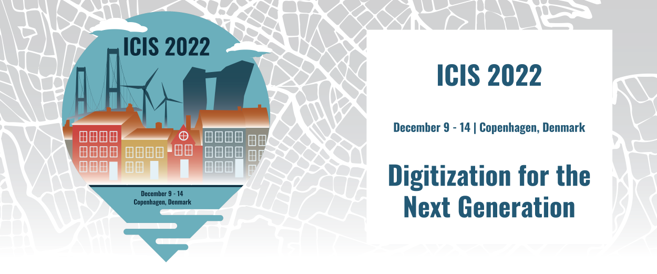Digitalization holds much promise to enhance organizational performance, reduce social barriers, enable environmental sustainability, and increase accessibility to information, networks, commerce and services. However, the pervasiveness and emphasis on digitalization, if not approached with social consciousness, may have unintended negative consequences for its societal impact. On the one hand, digital transformation efforts can enable a more sustainable society, such as the rise of smart cities or circular economies. On the other hand, digitalization may be inaccessible to certain communities and may further exclude institutionally marginalized communities and individuals across the globe. Furthermore, decision-making systems that leverage aspects of machine learning and artificial intelligence (AI) continue to introduce biased outcomes. Given the complexity and velocity of digitalization, our understanding of its social impact often lags behind its introduction and widespread use. The Information Systems community is in a unique position to uncover and shed light on the effects digitalization and various applications of information technologies have on our society. This track calls for papers that investigate both the intended and unintended societal impacts of information systems. Studies in this track go a long way to inform regulators, practitioners, users, and researchers from other disciplines. This track welcomes innovative, rigorous and relevant theoretical, empirical, and design studies on societal impacts from interactions with and influences of information systems. Empirical (qualitative and quantitative) studies as well as design-oriented research and conceptual/theoretical papers for theory development will be considered. Various dimensions, including social, economic, cultural and ethical aspects, can be involved in these relationships. We encourage submissions at different levels and cross-levels of analysis. The research questions may derive from a broad spectrum of disciplines.
Track Co-Chairs Hala Annabi, Ph.D., University of Washington Robin Teigland, Ph.D., Chalmers University of Technology Shuk Ying (Susanna) Ho, Ph.D., The Australian National UniversitySubscribe to RSS Feed (Opens in New Window)
| 2022 | ||
| Monday, December 12th | ||
| 12:00 AM |
Dahae Jeong, Arizona State University 12:00 AM |
|
|---|---|---|
| 12:00 AM |
Artificial Intelligence in Organisation and Managerial Studies: A Computational Literature Review Marco Smacchia, Università degli Studi G. d'Annunzio Chieti-Pescara 12:00 AM |
|
| 12:00 AM |
Breaking Online Tribalism: Motivated Reasoning, Empathy and Polarization Fangshi Lin, National University of Singapore 12:00 AM |
|
| 12:00 AM |
Coping with Self-harm in Elderly People: The Impact of Internet Use on Suicidal Ideation Woosik Shin, Yonsei University 12:00 AM |
|
| 12:00 AM |
Chintha Dammi Kaluarachchi, RMIT University 12:00 AM |
|
| 12:00 AM |
Don’t Marginalize Me: How Organizations Facilitate Social Injustice Via Social Media Ilkay Nehir Tanyel, University of Cincinnati 12:00 AM |
|
| 12:00 AM |
Sünje Clausen, University of Duisburg-Essen 12:00 AM |
|
| 12:00 AM |
Is Centralization Good IT Governance or Postcolonial: Insights from NGOs Marie Godefroid, Universität Siegen 12:00 AM |
|
| 12:00 AM |
Making Sense of the Sustainable Smart PSS Value Proposition Nina Lugmair, Friedrich-Alexander-Universität Erlangen-Nürnberg 12:00 AM |
|
| 12:00 AM |
Maike Althaus, Paderborn University 12:00 AM |
|
| 12:00 AM |
The Adverse Effect of Online Food Delivery on Health: Empirical Evidence Lin Qiu, Southern University of Science and Technology 12:00 AM |
|
| 12:00 AM |
The Case of Digital Ethics in IS Research – A Literature Review Christopher Julian Kern, EBS Universität für Wirtschaft und Recht 12:00 AM |
|
| 12:00 AM |
Cameron McRae, McGill University 12:00 AM |
|
| 12:00 AM |
WILL THEY STILL PAY? A STUDY OF CONSUMER BEHAVIOR IN AN UNMANNED RETAIL ENVIRONMENT Yihong Lan, National University of SIngapore 12:00 AM |
|


